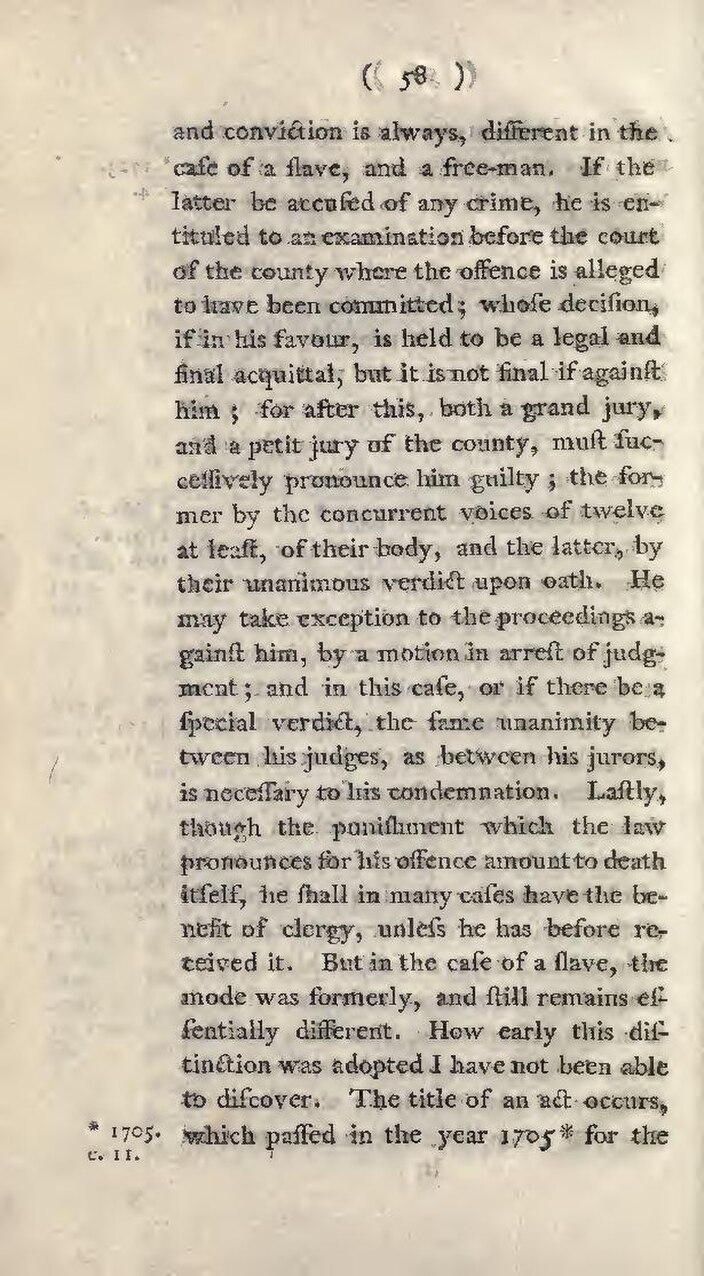( 58 )
and conviction is always, different in the case of a slave; and a free-man. If the latter be accused of any crime, he is entituled to an examination before the court of the county where the offence is alleged to have been committed; whose decision, if in his favour, is held to be a legal and final acquittal, but it is not final if against him; for after this, both a grand jury, and a petit jury of the county, must successively pronounce him guilty; the former by the concurrent voices of twelve at least, of their body, and the latter, by their unanimous verdict upon oath. He may take exception to the proceedings against him, by a motion on arrest of judgment; and in this case, or if there be a special verdict, the same unanimity between his judpes, as between his jurors, is necessary to his condemnation. Lastly, though the punishment which the law pronounces for his offence amount to death itself, he shall in many cases have the benefit of clergy, unless he has before received it. But in the case of a slave, the mode was formerly, and still remains essentially different. How early this distinction was adopted I have not been able to discover. The title of an act occurs, which passed in the year 1705** 1705. c. 11. for the
